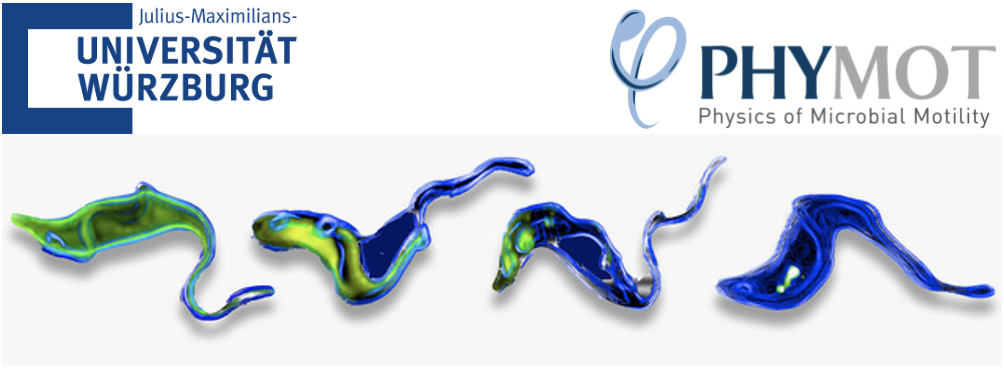Speaker
Description
The impact of confinement on the self-organization of active particles has gained much attention1,2,3. Previous investigations have primarily focused on circular or square/rectangular geometric constraint. However, to explore more realistic scenarios, like particles enclosed in a membrane, confinement in curved geometry is essential 4. A suitable and simple geometry for such a case happens to be the ellipse. Consequently, we present simulations (in Julia5) of active Brownian particles in hard elliptical confinement. The particles interact via hard sphere correction and experience reflection upon reaching the boundary6. We found curvature-dependent organization of the particles, wherein more particles tend accumulate at high curvature (equators) of the ellipse. Moreover, the extent of curvature induced collection depends on various factors, including on the eccentricity of the ellipse, packing fraction, particle size, and velocity. Furthermore, we are actively looking for experimental evidence of this collective dynamics based on active Janus particles (Pt/silica) confined inside elliptical micro wells. To have the necessary confining structure, we successfully implemented a novel yet simple drop cast method allowing formation of a few microns sized elliptical wells in a PDMS film. These wells were able to confine the Janus particles, aiding observation. We anticipate our results might be applicable to the design of active particles-based microrobots, where environment-induced curvature of the membrane boundary could guide encapsulated active particles.
References:
1) “Active particles in complex and crowded environments”, Rev. Mod. Phys. 88, 045006 (2016)
2) “Steering self-organization through confinement”, Soft Matter, 19.1695-1704 (2023)
3) “Active Brownian Motion with Orientation-Dependent Motility: Theory and Experiments”, Langmuir 36, 25, 7066–7073 (2020)
4) “Active particles induce large shape deformations in giant lipid vesicles”, Nature, volume 586, pages52–56 (2020)
5) https://julialang.org/

